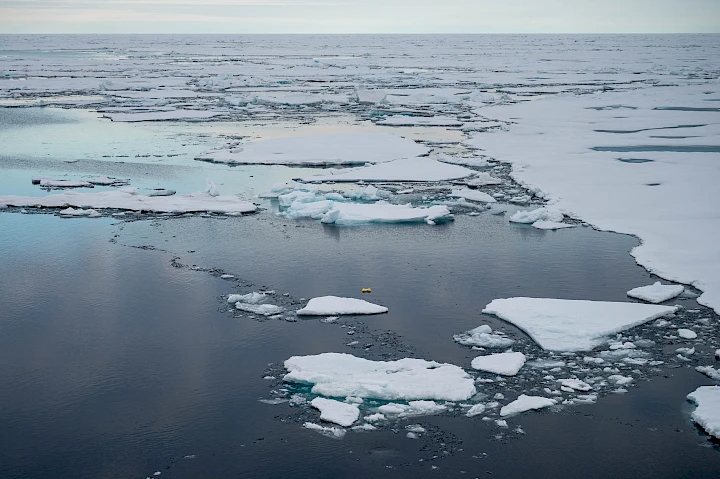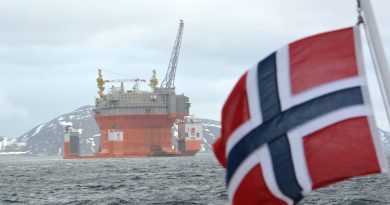Arctic litter-monitoring project launches northernmost GPS capsule in Arctic Ocean

The Arctic Council working group behind the “Plastic in a Bottle” project to track marine litter, launched its northernmost capsule in the Arctic Ocean this year, the latest step in the multi-year project.
“We’ve seen in our previous work that plastic can be found just anywhere, but we have so little knowledge in terms of its travel in the High North, so it’s really interesting to see what’s going on there,” Hjalti Hreinsson, project manager at the Arctic Council’s Protection of the Arctic Marine Environment (PAME) working group, told Eye on the Arctic in an interview.
“More shipping traffic, tourism, and research vessels [in the High North] means more people, which also probably means more litter, which makes it even more important.”
The capsule was launched in the Arctic Ocean at 84 degrees north.
It’s anticipated that the capsule will drift west from its drop off point and possibly reach Greenland or Iceland.

Started in 2019 during the Arctic Council’s last Icelandic chairmanship, the Plastic in a Bottle initiative was prompted by a recognized knowledge gap.
At the time, the Arctic Council’s Protection of the Arctic Marine Environment (PAME) working group said that despite the increasing understanding of how currents, streams, waves, and winds transport litter across oceans, the precise dynamics of plastic movements in and out of Arctic waters remained largely unexplored.
To address this knowledge gap, the “Plastic in a Bottle” project was initiated, involving the release of solar-powered GPS-equipped capsules into the water to simulate the movement of plastic bottles. A dedicated website was established to enable researchers and the public to track the journeys of these capsules.
Messages are contained inside the capsule with instructions on what to do and who to contact when they wash ashore. To date, two capsules have been found.
One, launched off the western coast of Iceland, and another, launched off Svalbard, both ended up ashore on the Isle of Tiree in Scotland.
GPS on latest capsule had gone dark
Seven capsules have been launched since the inception of the project
The latest capsule was launched on August 18, but the GPS signal has since gone quiet.
“We’re not 100 per cent sure why,” Hreinsson said. “It may be out of satellite range or it may be enclosed in sea ice and not getting sun to recharge.”

Researchers say they hope the GPS will come online again in 2024 once the sea ice begins to retreat.
Canadian launch on wishlist
Future capsule launches are being planned, with the South Pole and the North American Arctic of particular interest.
“We have ambitions for Antarctica which would be a very interesting to see what would happen, as well as the Canadian Arctic and Alaskan Arctic because we’ve never launched from there,” Hreinsson said.
“We are just waiting for right moments and opportunities.”
The Arctic Council is an international forum made up of the world’s eight circumpolar nations and six Arctic Indigenous groups.
PAME is one of six working groups in the Arctic Council. The working groups are made up of international experts on a particular subject and conduct the main work of the forum. The other five groups focus on emergency preparedness, flora and fauna, monitoring and assessment, contaminants and sustainable development.
The map to track the capsules trajectories is available here on the PAME website.
Comments, tips or story ideas? Contact Eilís at eilis.quinn(at)cbc.ca
Related stories from around the North:
Canada: Study shows microplastics can migrate to whale and dolphin tissue, Eye on the Arctic
Finland: Citizens’ initiative prompts Finnish lawmakers to consider microplastics ban, Yle News
Norway: Report reveals high levels of microplastics on Norway’s Arctic coast, The Independent Barents Observer



